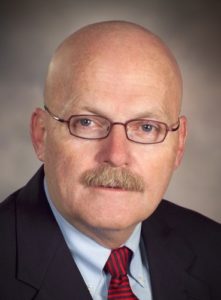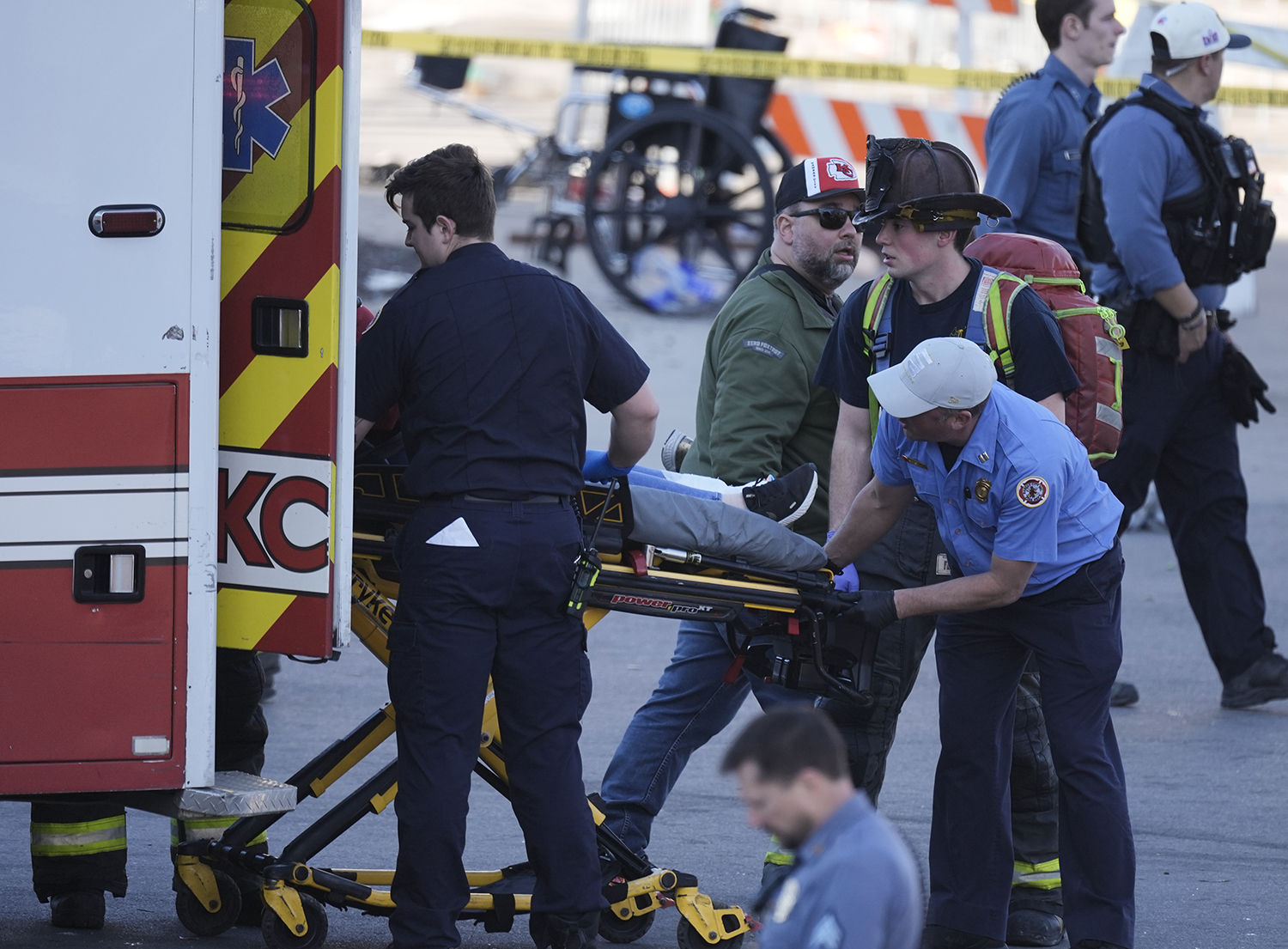I got goaded into riding a drop tower while visiting an amusement park in Orlando.
“Oh, come on. … It will be fun!” they said.
The higher the gondola went up in the air, the more angst I experienced. One co-rider yelled, “Breathe! Breathe! It will soon be over.”

Harold Ivan Smith
Generally, the word “grief” is assigned to the experience of death of a family member or friend. Would-be-comforters have a dozen ways to say the equivalent of, “Breathe. It will soon be over. You will soon have ‘closure.’”
However, my colleague Darcy Harris at King’s College, Ontario, insists we grieve for all types of things: loss of pet, loss of job, loss of an investment, loss of a marriage, loss of a career trajectory. We grieve when our congregation is torn asunder by a pastor’s agenda or a reaction to a pastor’s agenda. We grieve when we realize denominations are not so different from other bureaucracies. We grieve when a beloved pastor “feels led of the Lord” to move on or retires.
“We grieve for the loss of anything that is important to us.”
We grieve for the loss of anything that is important to us. My students at the community college, working in pairs, identified more than 130 “things” for which one can grieve. Sooner or later, every human will experience a “drop tower” intrusion — without warning. Bam!
A Chiefs fan
Although a resident of Kansas City for four decades who now lives in Palm Springs, I have remained a loyal Chiefs fan. I sat rigid, anxious and dispirited through the third and fourth quarters of the Super Bowl. My confidence in Patrick Mahomes evaporated. Clearly, I assumed, my Chiefs were going to lose to the Forty-Niners. Why not just call it a night? Why wait around to see the other team celebrate?
Then the game was tied and went into overtime. I almost concluded, “The Chiefs are going to lose in overtime. I might as well head to bed.” But I knew the next day or in following days, regardless of the score, someone would ask, “Did you see the end of the game? Wow, wasn’t that something!”
Many readers watched the game-winning touchdown or on the reruns — an “I can’t believe it!” spectacular throw and catch in the end zone. From the depths of anticipatory I rocketed into the realms of fan ecstasy! The Chiefs had done it again. Mahomes had “come through.” And to see Coach Andy Reid grinning! Certainly, there was sadness for the Forty-Niners but there will be “next year.” Ah, the assumed “next year.”
Oh, the joyous emails and texts I exchanged with my friends in Kansas City. And high fives I exchanged the next Sunday with a fellow parishioner during the passing of the peace. (He wears red Chief T-shirts to worship on game day.)
Back-to-back world champions. Another ring for Patrick Mahomes and Travis Kelce. Another “sea of red” parade in Kansas City, from downtown to Union Station. Winter or no, fans were going to show up to celebrate “their” team. Moreover, several local school districts gave students the day off. Thus, lots of children were going to a memory-making parade.

Aerial view of the NFL Kansas City Chefs Super Bowl LVIII victory parade February 14, 2024, in Kansas City Missouri. (AP Photo Credit: mpi34/MediaPunch /IPX)
Ash Wednesday
The Chiefs chose Ash Wednesday for their parade. No one protested, “Ah, it’s Ash Wednesday!” (I am surprised some clergy did not distribute ashes along the parade route since folks didn’t want to miss the parade.)
In Palm Springs, I headed to the morning Ash Wednesday service. I needed — really needed — an opportunity to mouth the ancient liturgy: “Most holy and merciful Father: We confess to you and to one another, and to the whole communion of saints in heaven and on earth, that we have sinned by our own fault in thought, word, and deed; by what we have done, and by what we have left undone.”
I prefer the “we confess…” rather than “I confess … .”
And that morning we ash-ers went through the laundry list of sins. Admittedly, I prefer the “we confess…” rather than “I confess …” because, that morning, there were Trumpers sitting near my pew. Fact is, I have had some feelings that fall into the category of “for all false judgments, for uncharitable feelings toward our neighbors.”
Recently, I stopped attending a small group Bible study because of what some people dared to say in the group and assume I would agree with them. But the reality is, to get ashes on your forehead you’re gonna do some confessing first.
Our music staff never selected the most obvious song for the service: “Not my brother, not my sister, but it’s me, O Lord, standing in the need of” some serious confessing. Perhaps because that spiritual has six “it’s me”s in the chorus.
As the Chiefs parade began in Kansas City, given the two-hour time difference, I was surprised when the service’s preacher said in her homily, “Death is just around the corner.” Rather blunt thing to say to our privileged community of faith. Sure, it’s true but who needs to be reminded. The news will let us know multiple times during the course of the day.
Admittedly, there were lots of other things I could have been doing on Ash Wednesday morning. The preacher had more to say before we could get the ashes. “All fear,” she said, “is rooted in the fear of death.”
Well, that sounds like something right out of Ernest Becker or Bessel van der Kolk. Even in Kansas City that day or evening, some versions of her thoughts were preached before ashes were imposed.

A person is taken to an ambulance after an incident following the Kansas City Chiefs victory parade in Kansas City, Mo., Wednesday, Feb. 14, 2024. (AP Photo/Charlie Riedel)
‘Death is just around the corner’
After the service, I kept thinking of her six jagged-edged words, “Death is just around the corner” with Jesus’ words, “In such an hour as you think not” and from having sung countless times during altar calls “Softly and Tenderly’s” poignant announcement: “Time is now fleeting, the moments are passing … for you and for me.” (Yes, I know Jesus was referring to the Second Coming because I listen to fiery exuberant expositions of end times morning, noon and night on local Christian radio.)
However, during 18 years on the teaching faculty at St. Luke’s Hospital in Kansas City, I led storytelling groups for grievers. I listened to countless “in such an hour as you think not” grievers who had found themselves in emergency rooms in midnight hours waiting for a doctor to not say, “I’m sorry — we did everything we could.” Or who stood outside a gun-stimulated setting where loved ones had died.
In my years conducting funerals for Forest Lawn Mortuary in Southern California, I have worked with countless “in such an hour as you think not” grievers whose worlds were shattered: “My boys were just going fishing”; “We were just one week from our golden anniversary celebration”; “We thought …”; “We just assumed we would do the ‘come grow old with me.’”
In a split second, individuals became “in such an hour as you think not” grievers.
Assumptive worlds
But there is another grief: grieving for our lost assumptive worlds. Ronnie Janoff-Bulman was one of the first thanatologists to identify the importance of recognizing this loss. Each of us has hundreds of assumptions in our mental backpacks — assumptions about how the world works, how God works, how a marriage or church or job works. But rarely do we assume my assumptions can collapse into a smoldering heap as did the assumptions of Job.
“Rarely do we assume my assumptions can collapse into a smoldering heap as did the assumptions of Job.”
Christians focus on the grief for a deceased individual or individuals. But, in reality, Christians must also pay attention to the death of assumptive worlds and grieve for those assumptions: “I assumed God would heal her.” “I assumed we would grow old together.” “I assumed he had one of the best surgeons in the world.” “I assumed if we watched what we ate and exercised … .” In Israel in early October everyone just assumed the Israeli military, the IVF, was “ready” for any terrorist threat.
So, on Ash Wednesday, hundreds of thousands headed to downtown Kansas City assuming they would experience a splendid parade; admittedly, some of those individuals would never come to that section of Kansas City after dark. Many assumed there would be adequate police to deal with any misbehaving by overly celebrative rowdy fans.
No one assumed the afternoon would be anything but a dazzling memory.
No one assumed there could be a shooting.
No one assumed nine children would be shot.
No one assumed that in a moment the celebration and exuberance could pop like a balloon or like bubble gum on our face.
In a moment — the blink of an eye — the outrageous, the unthinkable, the unimaginable happened, thrusting a lancer into assumptive worlds. Perhaps one or two, or a few dozen, that very morning in devotions had read, “He shall give his angels charge over you to keep you in all your ways.” No asterisk saying except if you’re in a crowd of 1 million celebrating a Super Bowl win.
Particularly troublesome, in this case, was the exuberant presence of children — young innocent children — cheering for their Chiefs, some decked out in Chief colors and merchandise either Santa had brought them or their parents had purchased for them. In the intoxicating exuberance, children fell to the pavement, wounded or frightened, as parents tried to shield them. All that exuberance about being out of school and a parade evaporated. And some had been so pleased that they had “persuaded” a parent to take them to the parade.

Children’s Mercy Hospital Kansas City
Children’s Mercy
Providentially, a stone’s throw from Union Station is the incredible Children’s Mercy Hospital that has been taking care of children for 125 years. During that century-and-a-quarter, no one could have imagined or predicted what erupted in their Emergency Room. Children’s Mercy received the gunshot and gun-shocked wounded.
“How does one grieve for burst exuberance?”
How does one grieve for burst exuberance? Or for shattered assumptions? Hopefully, not alone or in isolation. Jesus encountered collapsed exuberance and assumptive worlds on a stretch of the road to Emmaus when he approached two disciples “talking with each other about everything that had happened.” They acknowledged their assumption — “we had hoped he was the one who was going to redeem Israel.”
“Everything that had happened” has been talked and re-talked throughout Kansas City Metro and across the world staccatoed with, “I just can’t believe it!” More than a few parents and grandparents got the “Whew” calls that it wasn’t their child or grandchild now in Childrens’ Mercy.
That evening, for tens of thousands watching national news, it was yet another “Blanche, there’s been a shooting … .” Another shooting that bumped the previous “another shooting” off the news.
As a thanatologist and a believer, I have long nurtured an assumption that there would be some gun-shaken event that would, finally, burst the power of the gun idolists. I can name a string of events, mass shootings, that I thought would be the “this time.” I assumed some mass shooting would trump the rigidly entrenched, “Nothing’s gonna change” assumptions. Yet, after each of those shootings I again heard, “Guns don’t kill people” or “They’re coming to take away our guns.”
Maybe it was all those Sundays spent in Sister Ina Quiggins’ Sunday school class in the church basement. Sister Ina most definitely took Scripture literally. That’s why we memorized Scriptures and why we periodically, excitedly, enthusiastically recited them in front of the congregation (and collected nickels and dimes afterward). Sister Ina had an affinity for Matthew 25:40, “‘Truly, I say to you, as you did it to one of the least of these my brothers, you did it to me.’” She explained how childrens’ little acts of kindness helped Jesus. I concede many translations use “for one” rather than “to one.”
I think of the lyrics the old saints sang, “My ambitions, plans and wishes at his feet in ashes lay.” Just insert assumptions into the lyrics. Sooner or later, a chunk of my assumptions — your assumptions — are going to “in ashes lay.” And you may say, “I was a fool to assume … .”
Will there be another victory parade if/when the Chiefs win another Super Bowl? Will 1 million decked in red show up to exuberantly salute their team? Will someone with a gun —or someones with guns — show up? Will anything be done about gun violence between now and the next Chiefs victory parade, whenever that may be?
I assume the rapture is more likely to occur in coming decades than significant gun law reform in American Babylon.
Harold Ivan Smith is thanatologist and independent scholar. For 18 years he served on the teaching faculty of Saint Luke’s Hospital in Kansas City, Mo. He earned graduate degrees from Scarritt College, Vanderbilt University, and a doctor of ministry degree from Asbury Theological Seminary. His writings include A Decembered Grief, On Grieving the Death of a Father; Grieving the Death of a Mother; When You Don’t Know What to Say; When a Child You Know Is Grieving, When Your People Are Grieving: Leading in Times of Loss.


